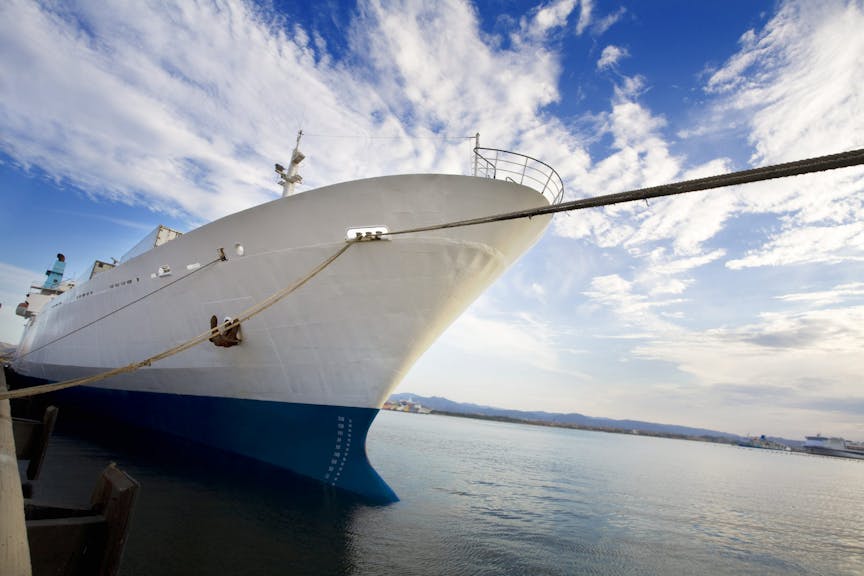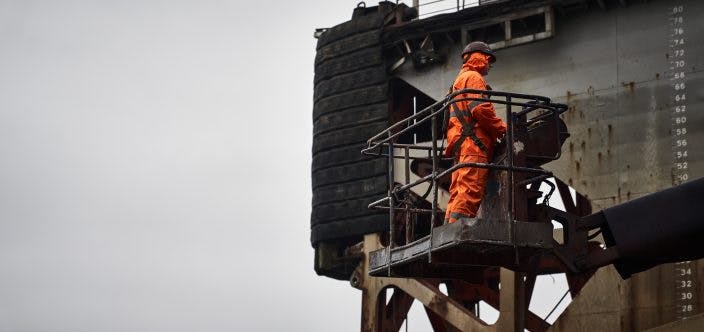Guidelines on lay-up of ship
Alandia recommends classification societies guidelines on lay-up of vessels to be used when a vessel is laid up. Depending on lay-up condition (hot or cold), planned lay-up time and location, different degree of measures is to be considered.

Alandia recommends classification societies guidelines on lay-up of vessels to be used when a vessel is laid up. Depending on lay-up condition (hot or cold), planned lay-up time and location, different degree of measures is to be considered.
For detailed measures and requirements, please take contact with Alandia.
To maintain the H&M insurance cover the assured should present a lay-up plan. The layup plan should include, as a minimum, the following items:
1. Lay-up site
- Location for lay-up to be presented with considerations on local weather conditions.
- Local authorities’ approval of the lay-up site to be obtained.
- Local fire brigade to be informed.
2. Mooring arrangements
- Mooring plan for the lay-up period and location to be presented.
- Description of maintenance routines for anchoring and mooring equipment and arrangements.
- Positions of other nearby vessels and distance(s) to shore.
3. Classification Society
- Lay-up notification to be sent to the classification society.
- Surveys must be conducted in accordance with Class rules.
- Report classification status changes to Alandia. Suspension of class will lead to termination of the insurance cover.
4. Minimum safe manning
- Flag state and port authorities’ requirements to be followed.
- Depending on type and length of lay-up period, safety, watch keeping, preservation and maintenance duties to be considered.
5. Power supply
- Arrangement of power supply and its redundancy to be presented.
- Possibilities for tug assistance and availability of propulsion machinery for emergency situations.
6. Safety precautions
- Emergency contingency plan must be available and presented.
- Fire sources should be removed or minimized as far as practical.
- The fire alarm and automation systems shall be kept in normal operation mode during lay-up.
- If the fixed fire-fighting systems are disabled for any reason, substitute systems must be operational and approved by the class.
- All cargo tanks, pump rooms, cofferdams and cargo lines must, as a general rule be kept gas-free during lay-up.
- Hot work conducted only if procedures for Hot-Work Permit are followed.
- Fire doors and water-tight doors and manholes must be kept closed.
- Preparations for freezing when outside temperatures expected to be below zero.
7. Security precautions
- Means to prevent unauthorized access to the vessel.
8. Maintenance
- Description of preservation and maintenance during lay-up according to class rules and maker’s instructions.
9. Reactivation
- Class’ requirements for re-activation to be followed.
- The makers instructions and recommendations for reactivation to be followed.
10. Lay-up returns
- Information and instructions regarding the application for lay-up returns, please contact Alandia
THESE GUIDELINES ARE GENERAL AND SHOULD NOT REPLACE ANY REQUIREMENTS GIVEN BY CLASSIFICATION SOCIETIES OR AUTHORITIES.


